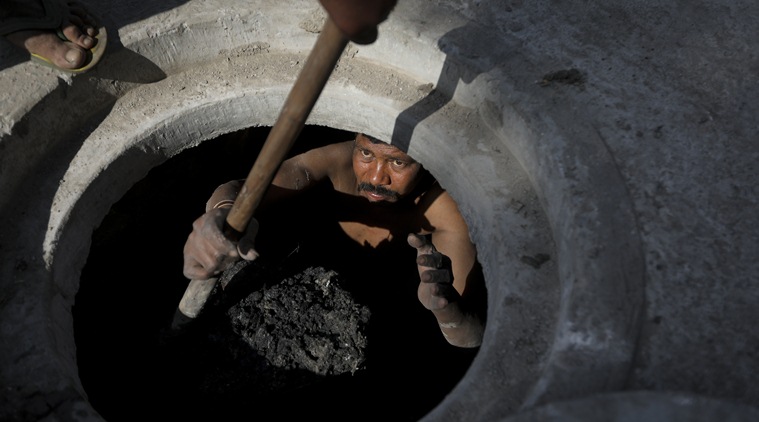Towards dignity
Other states should take a leaf out of Delhi’s use of technology to end manual scavenging, instead of living in denial

The introduction of a fleet of 200 machine-equipped trucks is unlikely to bring the scourge of manual scavenging in Delhi to an immediate end. Even then, Delhi’s AAP government deserves to be applauded for deploying technology in an effort to curb this dehumanising practice that has survived three changes in the law in the past 25 years. The sewer-cleaning machines that were launched last week have been designed to meet the demands of the small lanes in the capital’s slums and urban villages. Each unit has a tank to spray water and a sludge compartment to collect the silt cleaned up by the machine — this sludge was usually left along the sewer during manual cleaning. The machines will be given to manual scavengers, who will be trained to operate them.
The sanitation workers, who will be given the new machines, were identified by a Delhi government survey last year. But like most parts of the country, Delhi lacks an accurate count of the people engaged in manual scavenging. The Delhi government has acknowledged that its enumeration does not depict the extent of the problem in the capital. Other states, however, have not been that sensitive. For example, during a survey last year by the Centre, the governments of Haryana, Bihar and Telangana did not report even a single manual scavenger. But the task force conducting the survey — it comprised members from the ministries of social justice, rural development, drinking water and sanitation, and housing and urban affairs and the National Safai Karamchari Finance and Development Corporation — found that there were 1,221 manual scavengers in Bihar, Haryana had 846 such workers and 288 people in Telangana were engaged in this dehumanising practice.
The Prohibition of Employment as Manual Scavengers and their Rehabilitation Act, 2013, allows the use of manual labour to clean sewage if the employer provides safety gear. But, in practice, this provision is more flouted than followed. According to the social justice ministry’s records, one person dies every five days while cleaning sewers — unofficial reports indicate that the figure could be much higher. Municipal corporations and local bodies very often outsource the sewer cleaning tasks to private contractors, who do not maintain proper rolls of workers. In case after case of sanitation workers being asphyxiated to death while working toxic sludge pools in different parts of the country, these contractors have denied any association with the deceased. The Delhi government’s move to use machines is a first step towards according dignity and respect to sewer workers. It should be emulated in other parts of the country. However, technology’s emancipatory powers will be realised at their fullest only when the states stop living in denial about manual scavenging.









.png)




























No hay comentarios:
Publicar un comentario